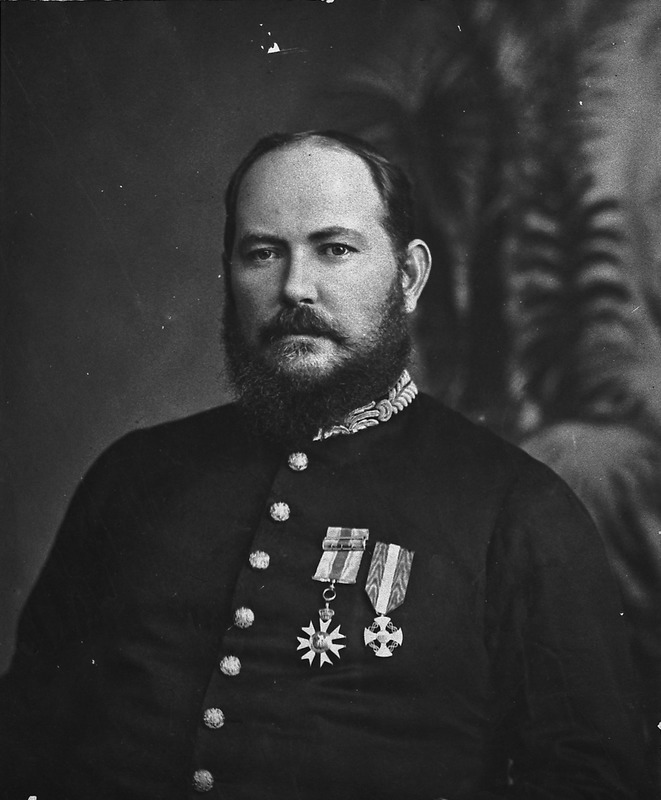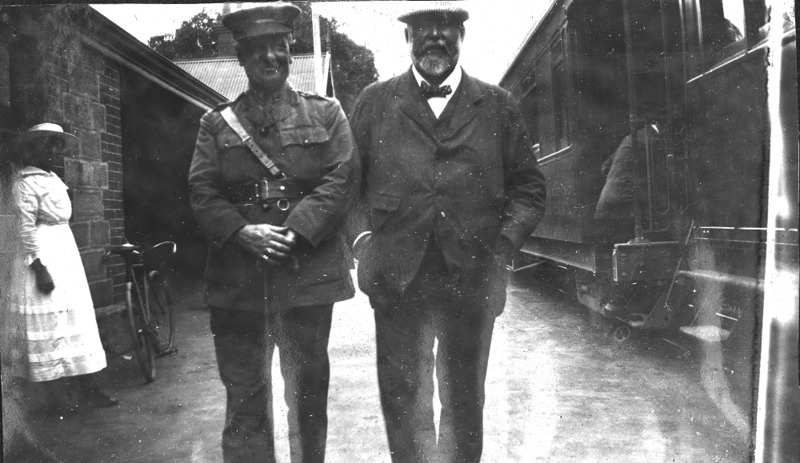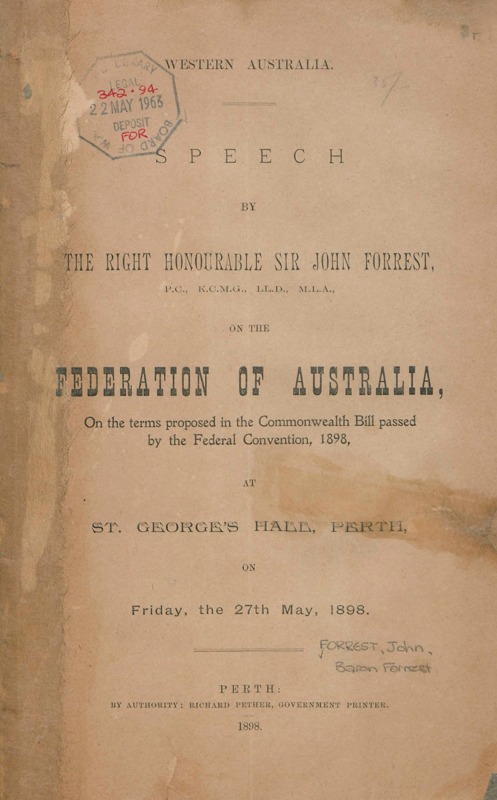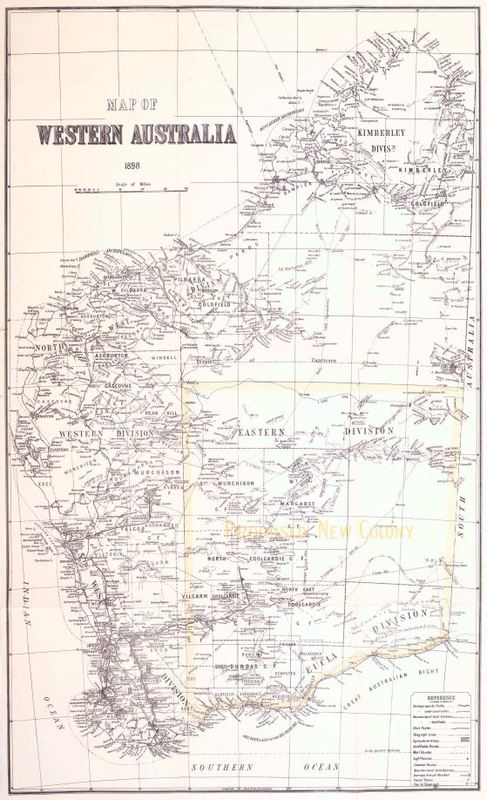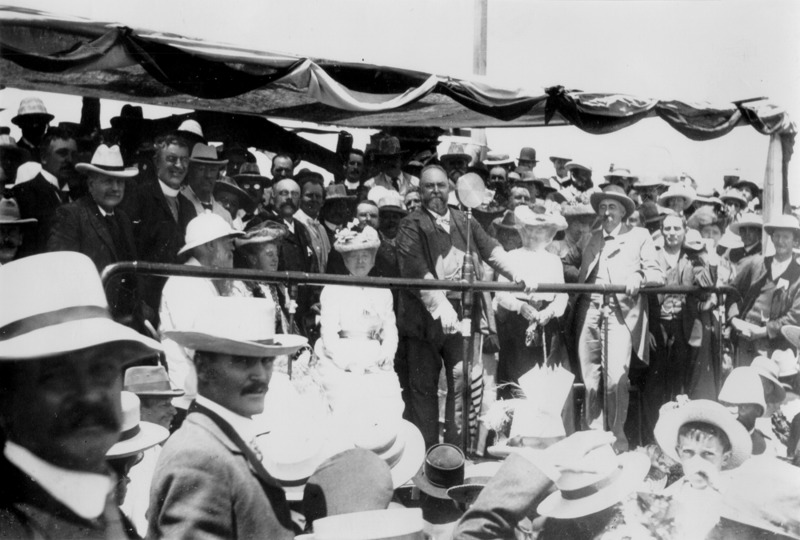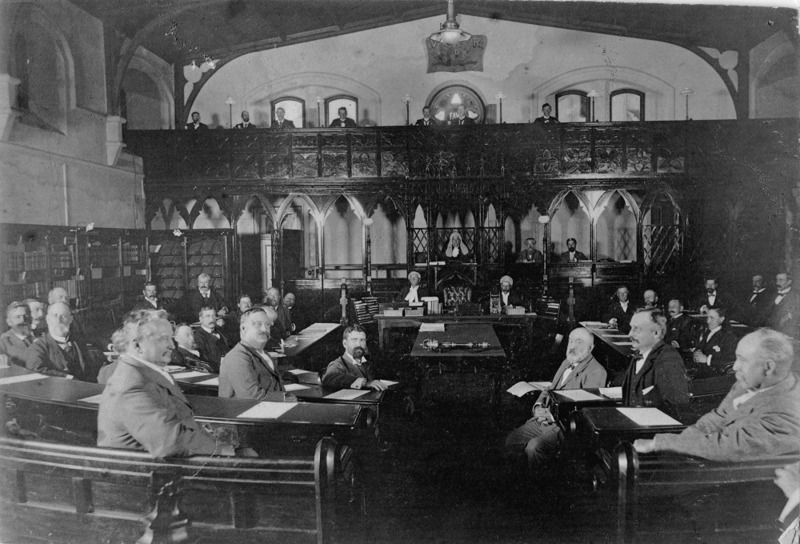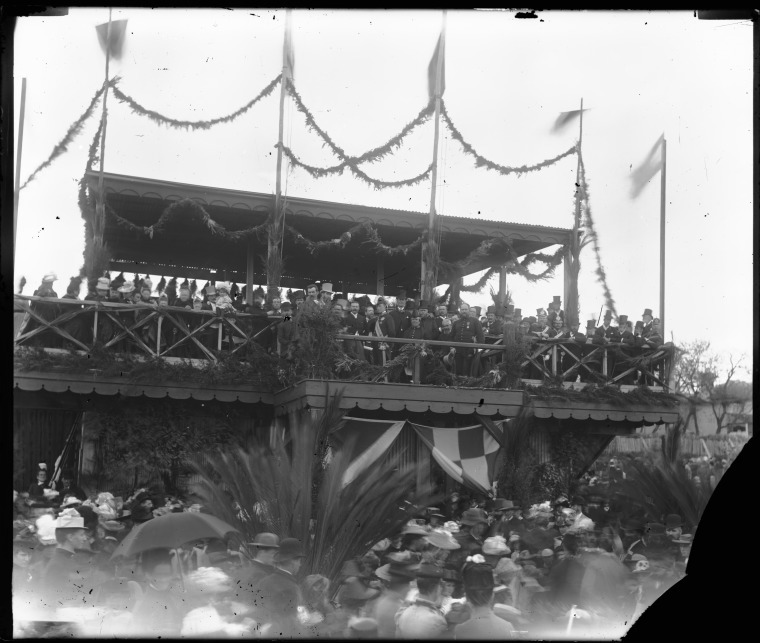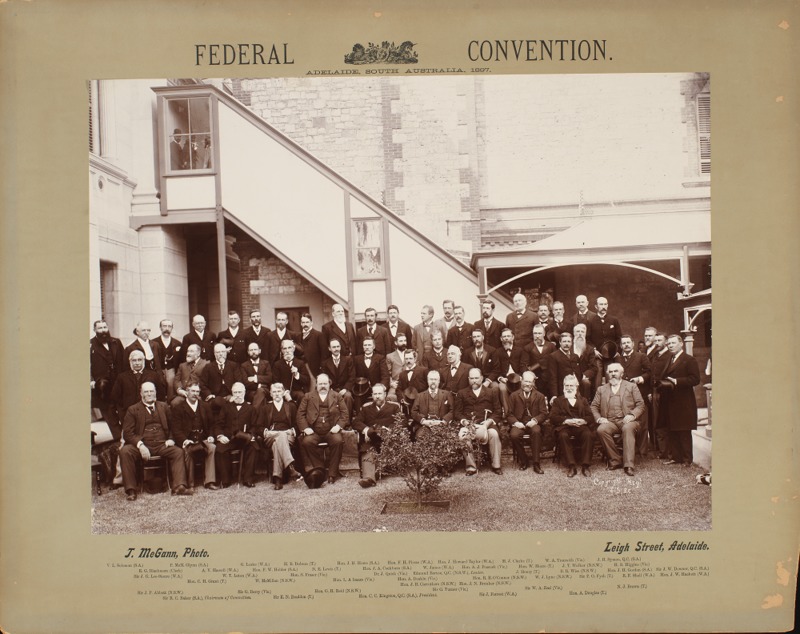John Forrest
John Forrest (1843-1918) was an explorer and politician. He was originally seen as the chief stumbling block to Western Australia joining the Commonwealth, while later being criticised as the person who helped bring Federation about.
Early career
Born in Bunbury to Scottish parents, John Forrest became the first Australian born baron in 1918. He began his career as apprentice to the assistant surveyor in Bunbury in 1863.
- In 1869 he led a party to search for the lost Leichardt expedition through an unexplored region near modern-day Laverton.
- In 1870 he led the first west to east crossing of Western Australia by land, following and surveying the route taken by John Eyre across the Nullarbor in 1840.
- In 1874 Forrest led another expedition from Geraldton, travelling through the outback to South Australia.
The next year he travelled to London where he gave public lectures and achieved fame as a colonial explorer.
Back in WA, Forrest received a free grant of 2000 hectares of land, and married Margaret Hamersley, from one of the colony's wealthiest families. He was appointed Surveyor-General in 1883 and given a seat in the Legislative and Executive Councils which acted as advisory bodies to the Governor. By the time Western Australia was granted a Constitution in 1890, Forrest had positioned himself to become the colony's first Premier, a post he held for the next decade.
Premier of WA
While Forrest was Premier, gold was discovered in Coolgardie (1892) and Kalgoorlie (1893). He used the boom to begin public works which previous administrations couldn’t afford. To do this he raised large loans in London, taking public debt from 1.4 million in 1890 to 12.2 million pounds in 1900. They paid for projects like the dredging of a new harbour at Fremantle, the laying of hundreds of miles of railway, and the construction of the Coolgardie Water Scheme.
Forrest supported the idea of a federation based on interstate free trade and a strong Senate to protect State rights. He had to balance the concern among his conservative support base that Federation would be too expensive for WA with the demands of large numbers of newly arrived miners on the goldfields. He was unable to win more concessions for Western Australia, so he cut his losses and led the 'Yes' campaign in the referendum on the grounds that any future deal offered to Western Australia might be worse.
Federal Politician
After Federation, Forrest resigned as Premier and entered the new Commonwealth Parliament as the member for Swan. He was Postmaster General in 1901, Minister for Defence (1901-03) responsible for sending Commonwealth forces to the last stages of the Boer War, Minister for Home Affairs (1903-04) and Treasurer in five governments between 1905 and 1918. As Treasurer he helped establish the financial arrangements between Commonwealth and States which lasted until 1927.
Forrest died in 1918 on board the troopship Marathon off the coast of Sierra Leone while on his way to London for medical treatment. In the words of the historian Frank Crowley,
"He had been a successful political broker and gardener in a small colony, but he lacked the vision or the ideology to become a statesman in the national scene, and in his wealthy old age he appeared to be more concerned with the conservation of Empire and privilege than the betterment of Australian society."
[Crowley, F. Australian Dictionary of Biography. Vol. 8, p. 551]
Focus Questions
- Why was John Forrest seen as a barrier to WA joining Federation and also blamed for it coming about?
- John Forrest’s government used the gold rush to pay for large public works. Can you find some comparable modern government spending decisions?
- What do you think of Frank Crowley’s assessment of John Forrest? What do you think he is criticising?
- John Forrest left a large legacy in WA. What role do his descendants play today?
Key words
Surveyor
Explorer
Premier
Statesman
Peerage
Further reading
Australian Dictionary of Biography - John Forrest
Parliament of Western Australia biographical register - John Forrest

